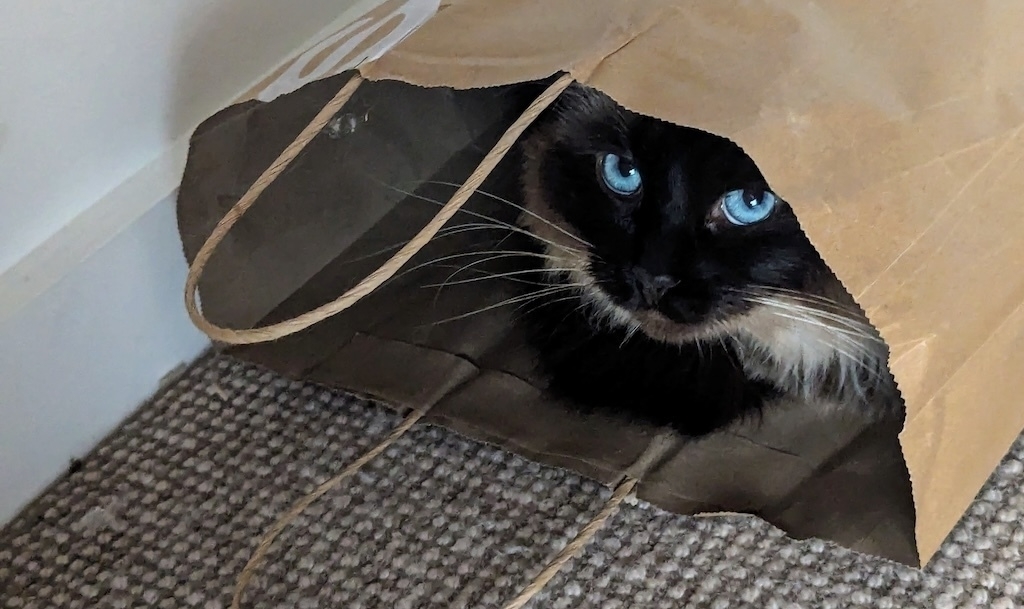💬 Everyone has principles, don’t they, until the moment they see the phrase, “MySQL wasn’t configured properly”?
Why niche blogs and Small Rooms still win - even in the age of technofeudalism
Views? I’ve had a few
Blogging is about creative expression, but as Tom Critchlow observes, it’s also about finding the others. I love blogging, and I have a personal blog that I love writing on. I guess you already know that, right? But I have to admit it, the Internet doesn’t treat blogs particularly well. The issue is that there’s no discovery flywheel for a blog. Google search is unlikely to make you visible, so you have to do all the work yourself of promoting it to potential readers. And as everyone knows, attention is a scarce resource these days. In contrast, social media thrives on showing people what you’ve made and algorithmically fine-tuning this to reach as many of the right people as possible.
I don’t love social media. In fact I do my best to avoid it. But I don’t mind forum sites so much, where the moderation keeps things at least a little civil.
Well, happily, my blog does have readers, a few at least.
To monitor reading figures, I use a very basic analytics service which respects users' privacy.
I could see from the dashboard that by June 2024 my site was getting about 1,200 views in a month. That’s amazing - thank you, to all of you, especially the keen ones right at the front taking notes! You’ll do well in the test later.
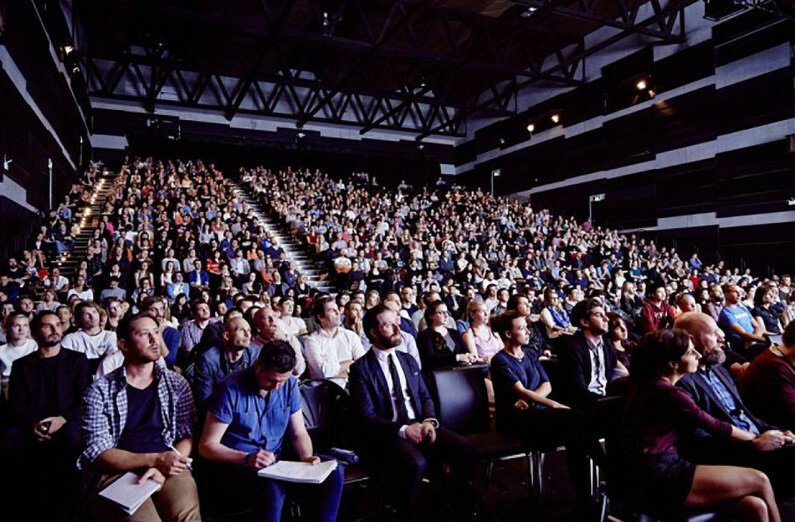 .
.
This is what a thousand people look like, though they’re not always as keen as this lot.
By July 2025 the count had risen to 6,000 views a month, where it now hovers. This may seem like a small number compared with how many times Beyonce’s been listened to, but it also compares very well with the number of people I can shout to across a crowded bar.
Now the most viewed individual post in June 2024 gained 216 views. It’s a more select crowd, but a crowd all the same! (Thanks for cheering, by the way).
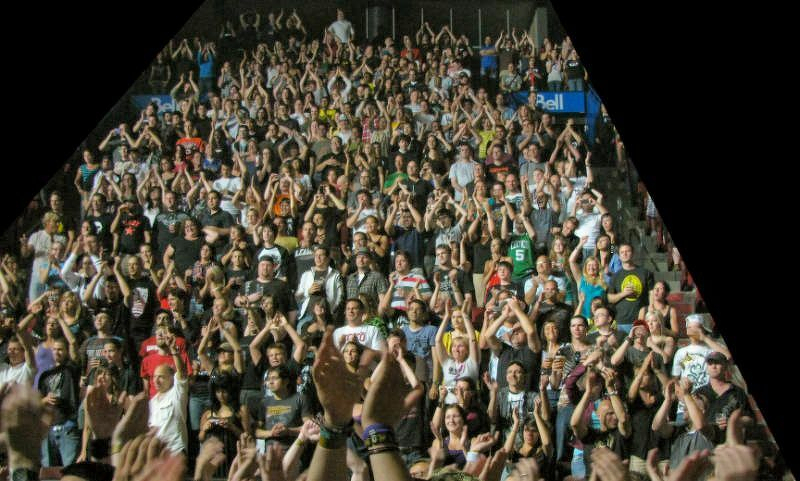
A crowd of 250 people is still a crowd.
And a year later it was still gaining 64 views per month. Here’s the thing though. The same post with 216 views on my website reached considerably more readers on Reddit. It had 3,200 views there, which is about fifteen times more eyeballs! And a year later it had doubled that count.

And one of my more popular posts on Reddit has had 14,000 views, which, amazingly, is more views than this tennis match had!1

This tennis match had 10,000 viewers - almost as many as my crappy post on Reddit
But that’s not the very most popular post of mine on Reddit. That would be this more recent one, with 71,000 views, a lot like this exciting football match:

These audience size images, by the way, come from Visualizing crowd sizes.

It’s ironic that my most viewed piece of writing is a single sentence long and it contains a very obvious spelling mistake.
Now to me this looks like a very big stadium. Top sports teams and pop stars would be happy with those numbers. But if you’ve posted stuff on the big platforms like Facebook, Instagram and Xitter (I’m told the X is pronounced ‘Sh’), you’re probably already laughing at these ‘tiny’ numbers. By jumping off your roof into a paddling pool with a goat in it you’ve probably enjoyed millions of views. You’ve probably gone totally viral. You’re probably a certified influencer too. But the thing is…
I don’t want to be a serf on someone else’s plantation
I can’t stand technofeudalism, in which a few billionaires own the platforms and we’re just sharecroppers in their extractive systems. Unhappily, as economist Yanis Varoufakis observes in his book, Technofeudalism, it’s the state of the world these days.

I’m never going to jump off my roof into this paddling pool, not even for views. Not even for likes.
I want a different world (I know, right?), in which data portability and interoperability are the norm, so that if I want to switch platforms I can take my ‘connections’ with me. As Professor Sinan Aral, author of Hype Machine, has imagined, “consumers would own their identities and could freely switch from one network to another.” This wouldn’t just be good for me, it would be good for the whole ecosystem, since it would give the neo-feudal platform overlords an incentive to provide a better service than that of their competitors. The Three-legged Stool is just one vision of how this could work in practice.
Meanwhile, I support services that already support interoperability. My blog is hosted by Micro.blog, which encourages me to syndicate it to other places, including Mastodon and BlueSky, which also support (some) interoperability. I’m anticipating the arrival of the Pluriverse by building it, one blog post at a time.
On the other hand, there’s a certain logic to performing where the audience is. When I was a kid I used to practice my music in public by busking. And I always busked where the crowds were, not down an empty back alley where no one was listening. My parents disapproved, until I told them how much I was earning.
If you believe your work is worth reading, then you probably also believe it’s worth getting it read by more than one person.
It’s a bit of a contradiction. Even progressive organisations like New Public, which exist ‘to reimagine social media’ nevertheless use extractive venture-capital platforms like Substack, which allegedly profits from hosting Nazis. This seems a far cry from New Public’s mission of ‘building digital public spaces that connect people, embrace pluralism, and build community’.
So these large systems that promise to promote your kind, helpful informative posts, also promote hate-speech and genocide.
But what’s the alternative? Shout into the void?
Actually, Molly White, with more than 20,000 subscribers, wasn’t happy with Substack, and she decided she didn’t want any platform dependence at all, so she rolled her own, and gave detailed instructions for anyone who might want to do the same.
Unfortunately, this isn’t simple. It’s not terribly difficult, but the bar is just high enough that it’s obvious that most people won’t bother. I mean, everyone has principles, don’t they, until the moment they see the phrase, “MySQL wasn’t configured properly”?
I’m not going to help out the haters, but I wouldn’t mind getting a few views, but also I’m not a tech wizard.
It’s a dilemma.
So where online are the people who might find my writing worthwhile? I might have some good reasons to prefer my blog over social media, but that doesn’t mean my audience does. Let’s say I’m writing a post about getting more readers. If I want to help people with this post, I need to think a bit about who it’s for and where these people usually go to get their information.
On reflection, it seems the obscure niche subjects I like writing about are well-suited to online ‘small rooms’ like subreddits, forums and discord groups, rather than ‘big rooms’ like Facebook and TikTok, where ‘context collapse’ is the norm.2
That’s because I’m not posting memes and ‘hot takes’. No goats were surprised by amateur divers in the making of this article. I’m trying to provide thoughtful, eccentric observations for thoughtful (not at all eccentric) readers, so context is everything. This means my interim solution is to post first on my blog, then syndicate where I can, then cross post to small rooms, manually when necessary. It’s a work in progress, but I do seem to be making a little progress.
My book, Shu Ha Ri: The Japanese Way of Learning, for Artists and Fighters is available right now and it’s selling fine, even though it’s a niche subject and I’m a marketing team of one.
A second reason I’m keen on my own website is that it’s a way of keeping a record of the canonical version of my online writing. The big platforms can just disappear overnight, taking everything with them as they go. Disappearance is also part of business as usual for social media. For example, Pew Research found that in 2023, 1-in-5 (20%) English language tweets had become inaccessible just three months after posting on Twitter (now X). I’d prefer to have some control over the longevity of my work. That’s why syndication is a good plan. Unfortunately, many of the big platforms don’t support it at all. The only way to syndicate is by hand, by copying and pasting. It’s feasible (I do this occasionally with Reddit), but not very efficient.
This matters because the way we organise our online lives bleeds into the way we organise the rest of our social interactions. If it’s just assumed without question that the online space is a fiefdom, then democracy everywhere is undermined.
For wise words on this subject, read Governable Spaces, by Nathan Schneider.
OK, so I know what I’m doing here (at least in one sense of that phrase), but what about what you should do? One piece of advice I do have is to notice how many people actually are reading, listening to or watching your stuff. Really notice. It might be a room-full, or a stadium-full. Every one of your readers, listeners or viewers has spent precious time and effort to engage with your thoughts, and whether or not it pays your bills, that’s amazing and worth pausing a moment to appreciate.
So here’s the point where we pause for a moment to appreciate the wonder that anyone at all is noticing our stuff.
Wow.
But unfortunately that’s all the advice I can give right now. Yes, I’d like to think niche blogs and Small Rooms still win, but that surely depends on how you define ‘winning’. I’m probably doing it all wrong. AI is rapidly transforming the whole landscape of discoverability. Organic search is less and less viable when AI summaries are everywhere. Perhaps, as some are prophesying, the humble hyperlink is dead.
So rather than tell you how to reach your readers (as if!), I have a question for you: how do you reach your readers already, right now, and how do you expect to in a near future dominated by lots of AI hype and quite a bit of AI reality?
What’s changing for you? Are you pumping up the paddling pool right now in preparation for a pivot to YouTube and massive fame? Would you still write if you had a single reader? And do you appreciate the readers you do have?
Oh, it turns out I have quite a few questions.
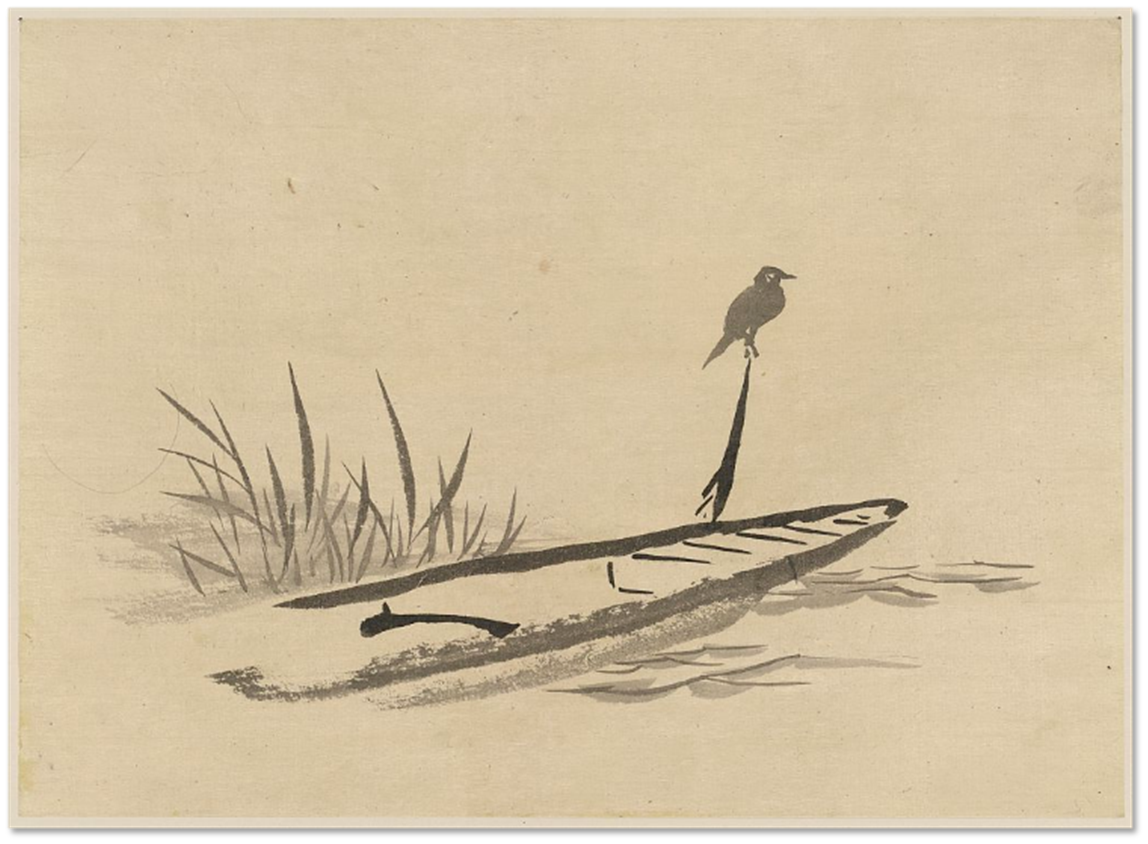
For still more questions and precious few answers, subscribe to the weekly Writing Slowly email digest.
-
It’s naive to trust Reddit’s figures, but that’s what they say, and you can’t do your own analytics. Well, I can’t anyway. ↩︎
-
I’m borrowing a taxonomy of social media that includes big rooms, small rooms and many rooms. ↩︎
Hey @manton now that micro.blog is getting very serious about video, perhaps there should be a video emoji on the discovery list. I’d love to be able to find more easily the videos micro.blog users will be making!
There's a fundamental flaw in how we learn about expertise
Learn Spanish in eight days? Learn to ski in a weekend? Finish a novel in a month? Design a book in three and a half hours? (OK, that last one was me - long story).
Everyone’s looking for shortcuts, but the way we approach learning fundamentally shapes how deeply we can master a skill.
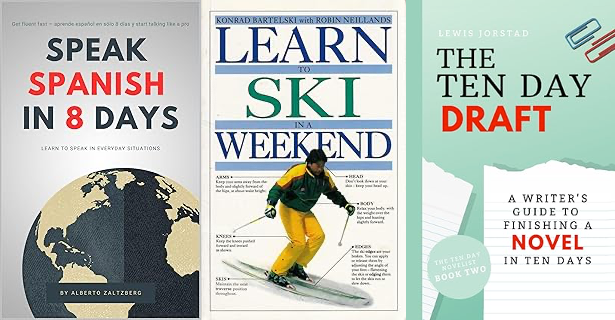
In the West, we’ve mostly embraced a linear progression; we’re all supposed to move methodically from theoretical understanding to practical application. First you learn in school and college, and only later do they let you loose in the real world. This approach has served us well in academic institutions and technical training programs.
But there exists an alternative philosophy that challenges this conventional wisdom: I’m referring to the Japanese concept of Shu Ha Ri.
Western learning models are characteristically linear; they often begin with cognitive frameworks before advancing to hands-on practice. Students typically start with rules, theories, and simplified components before attempting the full complexity of their chosen discipline.
In contrast, Shu Ha Ri represents a cyclical process that moves through three distinct phases: Shu (imitation), Ha (frustration), and Ri (detachment or transcendence). Rather than moving from simple to complex, this ancient framework begins with complete immersion in the master’s way.
I propose instead that while Western models serve their purpose in structured, academic environments, the Shu Ha Ri approach offers a superior framework for achieving true mastery.
This is particularly true in practical skills that demand intuitive understanding rather than merely intellectual comprehension. What’s more, Shu Ha Ri is a reminder that expertise isn’t truly linear anyway. The real experts continue to learn, and they’re always willing to accept they are still ‘beginners’ in a constantly changing world.
For any complex skill, the more you know the more you realise you don’t know.
A linear approach to learning makes sense but it’s not the only approach
It’s true that Western educatonal psychology has produced several influential models that support linear skill acquisition.
- Fitts & Posner’s Three-Stage Model of learning describes a clear progression beginning with the Cognitive stage, where learners consciously think through each movement whilst developing basic understanding. This advances to the Associative stage, characterised by refinement and error reduction as movements become more fluid. Finally, learners reach the Autonomous stage, where skills become largely unconscious.
- Adams’s Two-Stage Model offers a simpler linear progression from the Verbal-Motor stage to the Motor stage, where performance becomes increasingly automatic.
- Perhaps most influential is Scaffolding and Fading, an approach rooted in Lev Vygotsky’s theory of the ‘zone of proximal development’. This approach deliberately simplifies complex skills into manageable components, and the teacher provides extensive support initially before gradually removing assistance.
These models, and others like them, share a common thread: they assume that effective learning requires moving from simple, understood components toward complex, integrated performance.
Clearly there’s a lot of truth to this view.
But it’s not the only way of looking at things.
Shu Ha Ri is superior for mastery
These Western models excel at creating competent practitioners, but they may inadvertently limit the development of true mastery.
By prioritising theoretical understanding and simplified components, these approaches can create barriers to the deep, intuitive knowledge that characterises genuine expertise.
So what should we be doing instead?
1. Embrace the “Whole” over the “Simplified”
Western scaffolding deliberately fragments skills into digestible pieces. A violin student might spend a long time on bow hold or scales before attempting a simple melody, or a chef might practice knife cuts in isolation before approaching actual recipes. Culinary schools may dedicate days, or even weeks, solely to practicing various knife cuts (brunoise, julienne, etc.) to achieve consistency and speed before they are used in actual recipes.
This reductionist approach, though logical enough, can hinder or even prevent learners from experiencing the skill’s true essence.
The Shu Ha Ri model takes a radically different approach.
In the Shu stage, students engage immediately with the complete, unsimplified form. A student of the Japanese tea ceremony doesn’t begin with simplified movements or theoretical principles; they observe and attempt to replicate the real ritual from their very first lesson. The ritual is scaled: the student will start with the most basic, fundamental, and shortest temae (like hira-denae or a simplified usucha preparation). The master will hold back more complex tools and procedures, and will reserve advanced philosophical lessons for later in the training. While the ‘complete ritual’ is the simplest version the master has to offer, nevertheless the experience is holistic from day one, even if the content is strategically simplified.
This immersion in the “whole” allows learners to absorb subtle relationships between components that might be lost in a fragmented approach.
2. Prefer Imitation to Cognition
Western educational models often place considerable emphasis on cognitive understanding before physical practice.
Shu Ha Ri fundamentally inverts this priority. The Shu stage prioritises imitation and embodied practice while deliberately minimising cognitive load.
Students are encouraged to copy their master’s movements, timing, and approach without initially concerning themselves with underlying principles. This allows for “embodied cognition” to develop naturally through physical practice rather than intellectual analysis.
This difference becomes particularly apparent in disciplines that require split-second decision-making or subtle physical adjustments, as in martial arts.
But it also applies in contemplative skills such as shodo (calligraphy), ikebana (flower arranging) or, as mentioned already, the Tea Ceremony.
An artist learning through traditional Western methods might spend considerable time studying color theory and linear perspective before picking up a brush. The Shu Ha Ri approach would complement this with extensive observation and assisted practice, to allow the trainee to develop a practical understanding of line weight, shadow behavior, and subtle material texture that cannot be fully captured in textbooks.
3. Recognise Cyclical Refinement, not Finite Progression
Western models typically imply completion.
Eventually you graduate, which supposedly means you’ve reached a final “autonomous” stage where learning essentially concludes. Off you go!
The Shu Ha Ri model presents a fundamentally different philosophy. Rather than linear progression toward completion, it describes a cyclical journey of continuous refinement.
After achieving mastery, practitioners commonly return to foundational practices (Shu) with deeper understanding, uncovering subtleties previously invisible to them.
A master calligrapher might return to basic brush strokes after decades of practice, finding new depths in movements they’ve performed thousands of times.
This cyclical nature suggests that true mastery isn’t really a destination but rather an ongoing process of deepening understanding.
Sorry: it takes more than a weekend
Western learning models possess considerable strengths, particularly in academic settings where clear progression markers are essential.
They prove invaluable for complex technical skills where safety and precision demand systematic understanding. Medical training, engineering education, and scientific research obviously all benefit from structured, theoretical foundations.
That said, when our goal extends beyond competency to genuine mastery, particularly in practical skills that require intuitive understanding or creative expression, the Shu Ha Ri model, I believe, offers a more complete framework.
The traditional Japanese approach recognises that true mastery involves more than accumulated knowledge or perfected technique. It encompasses a quality of understanding that emerges through sustained practice, through cyclical refinement, and through a deep immersion in complete forms rather than in fragmented components.
True, linear models can efficiently create capable practitioners. But the cyclical, holistic, and imitation-based philosophy of Shu Ha Ri nurtures the lifelong pursuit of true mastery.
We’re obsessed these days with speed and with rapid skill acquisition: Speak Spanish in a weekend! Learn to ski in ten days! Finish your novel in just eight!
Good luck with that.
Meanwhile, the ancient wisdom of Shu Ha Ri reminds us that the deepest forms of human expertise can’t be rushed or simplified. Instead, they must be lived, embodied, and continually refined, through patient, cyclical practice.
In a future article I’ll offer some practical takeaways for your own learning journey. Meanwhile, you might like to check out my book, Shu Ha Ri: The Japanese Way of Learning, for Artists and Fighters, which is available right now.

References
- Adams, J. A. (1971). A closed-loop theory of motor learning. Journal of Motor Behavior, 3(2), 111-150.
- Fitts, P. M., & Posner, M. I. (1967). Human performance. Brooks/Cole.
- Hammerness, K., Darling-Hammond, L., & Bransford, J. (2005). How teachers learn and develop. In L. Darling-Hammond & J. Bransford (Eds.), Preparing teachers for a changing world: What teachers should learn and be able to do (pp. 358-389). Jossey-Bass.
- Hoffman, S. (2009). Introduction to kinesiology: Studying physical activity (3rd ed.). Human Kinetics.
- Kato, T. (2012). The traditional Japanese learning model: Shu-Ha-Ri. In M. Nakamura & T. Yamamoto (Eds.), Cultural approaches to skill acquisition (pp. 67-89). Tokyo Academic Press.
- Magill, R. A., & Anderson, D. I. (2017). Motor learning and control: Concepts and applications (11th ed.). McGraw-Hill Education.
- Schmidt, R. A., & Lee, T. D. (2019). Motor learning and performance: From principles to application (6th ed.). Human Kinetics.
- Vygotsky, L. S. (1978). Mind in society: The development of higher psychological processes. Harvard University Press.
- Wood, D., Bruner, J. S., & Ross, G. (1976). The role of tutoring in problem solving. Journal of Child Psychology and Psychiatry, 17 (2), 89-100.
Image credit: Photo by Nathalie SPEHNER on Unsplash
📷 From the top of the castle the town seemed to have been poured into its valley, where it flowed gently.
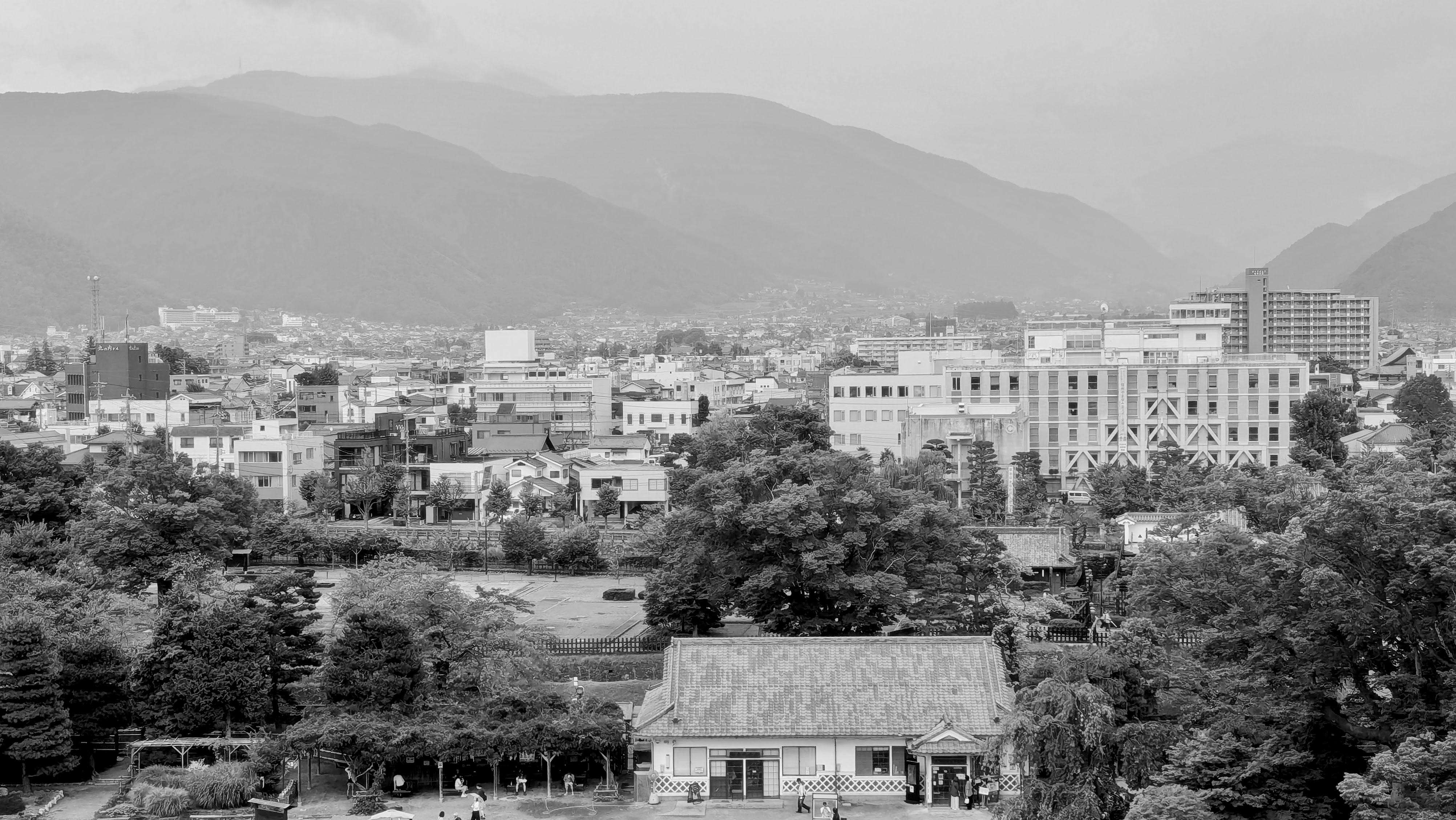
My book, Shu Ha Ri: The Japanese Way of Learning, for Artists and Fighters, is out now. Please check it out.
#Matsumoto #Photography #JapanCulture #ShuHaRi #Learning #Nonfiction #JapanTravel
💬 “How convincing does the illusion of understanding have to be before you stop calling it an illusion?”
That’s the question James Somers asks in The New Yorker.
My answer: Fail to see the illusion and you’ll fail to understand AI. Jules Verne could have told us AI is not a person
The case that AI is thinking | New Yorker. No, it isn’t.
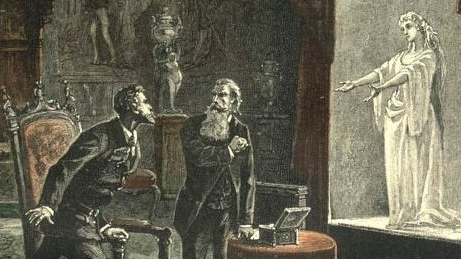
#AI #Tech #Consciousness #JulesVerne #Philosophy
To truly learn a language, you don’t need computers, you need human interaction. Time to get serious! Where to Go to Get Serious About Learning a Language | WIRED
—I’m the author of Shu Ha Ri: The Japanese Way of Learning, for Artists and Fighters.
#LanguageLearning #ShuHaRi #WIRED #Polyglot
A clear and accessible introduction to Japanese philosophy, in a podcast with Takeshi Morisato.
I’m the author of Shu Ha Ri: The Japanese Way of Learning, for Artists and Fighters, available now.
#JapanesePhilosophy #Podcast #ShuHaRi #Japan #Learning #TakeshiMorisato
AI is not helping the learning process
💬 “When teachers rely on commonly used artificial intelligence chatbots to devise lesson plans, it does not result in more engaging, immersive or effective learning experiences compared with existing techniques”
See also:
Civic Education in the Age of AI: Should We Trust AI-Generated Lesson Plans? | CITE Journal
I’m the author of Shu Ha Ri: The Japanese Way of Learning, for Artists and Fighters, available now.

What’s your most valuable note?
@eleanorkonik@pkm.social asked:
“Any examples where a tiny note became unexpectedly valuable?”
Here’s my reply.
In 2018 I wrote a note describing how I’d like to visit Japan and learn more about the concept of Shu Ha Ri.
Better late than never I did visit Japan, and I ended up writing the book on Shu Ha Ri.
There was a lot of value in that one short note.
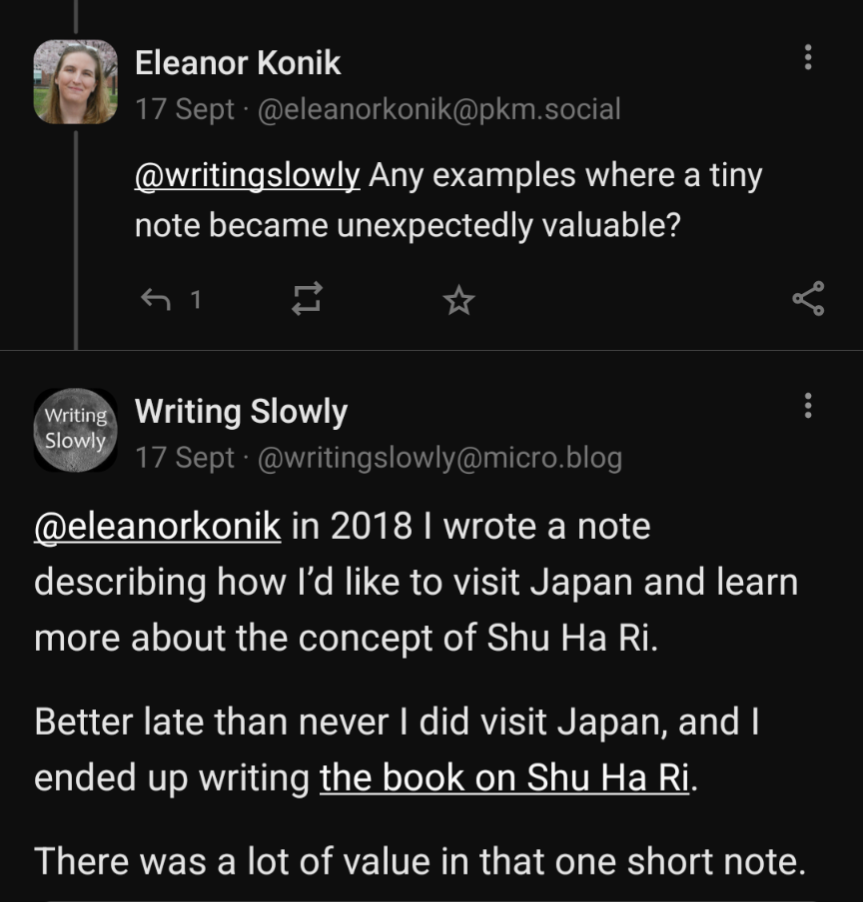
To truly understand, you must take things apart and build them back up. My cousin did it with cars, I do it with ideas in my #Zettelkasten and I did it with the concept of #ShuHaRi in my book.
Create your own mental models: it’s a high-agency, active process!
#learning #deeplearning #PKM #notetaking
Create your own mental models
When he was still in high school my cousin took to pulling old cars apart, completely, then putting them back together. This was a real learning experience, and the beginning of an entire career working with motor vehicles. François Chollet, author of Deep Learning with Python, said:
💬 To really understand a concept, you have to “invent” it yourself in some capacity. Understanding doesn’t come from passive content consumption. It is always self-built. It is an active, high-agency, self-directed process of creating and debugging your own mental models. - as quoted by Simon Willison.
This is what I’m doing with my collection of working notes, my Zettelkasten. I disassemble ideas and concepts, de-contextualise them, and reassemble them into new arrangements under quite different circumstances. From fragments you can build a greater whole.
Sometimes ‘invention’ is mashing together two or more existing ideas in new and unexpected ways. But sometimes it’s simply rebuilding an existing idea from the ground up, to create something previously unimaginable.
I wrote my book about the Japanese concept of learning, Shu Ha Ri, because in the fifteen years since I first encountered this concept, no one else had written a clear introduction. It’s quite literally the book I wanted to read for myself. Well, I certainly didn’t invent the idea, but in writing the definitive introduction I’ve certainly taken it apart, examined it from every angle, worked out how to explain it to others, and put it back together.
On Friday I received a nice text from a martial arts instructor, who’d been handed the book by someone else:
💬 I absolutely loved it. First time in a long time I immediately reread a book.
And so I hope you’ll enjoy giving the book a test drive too.
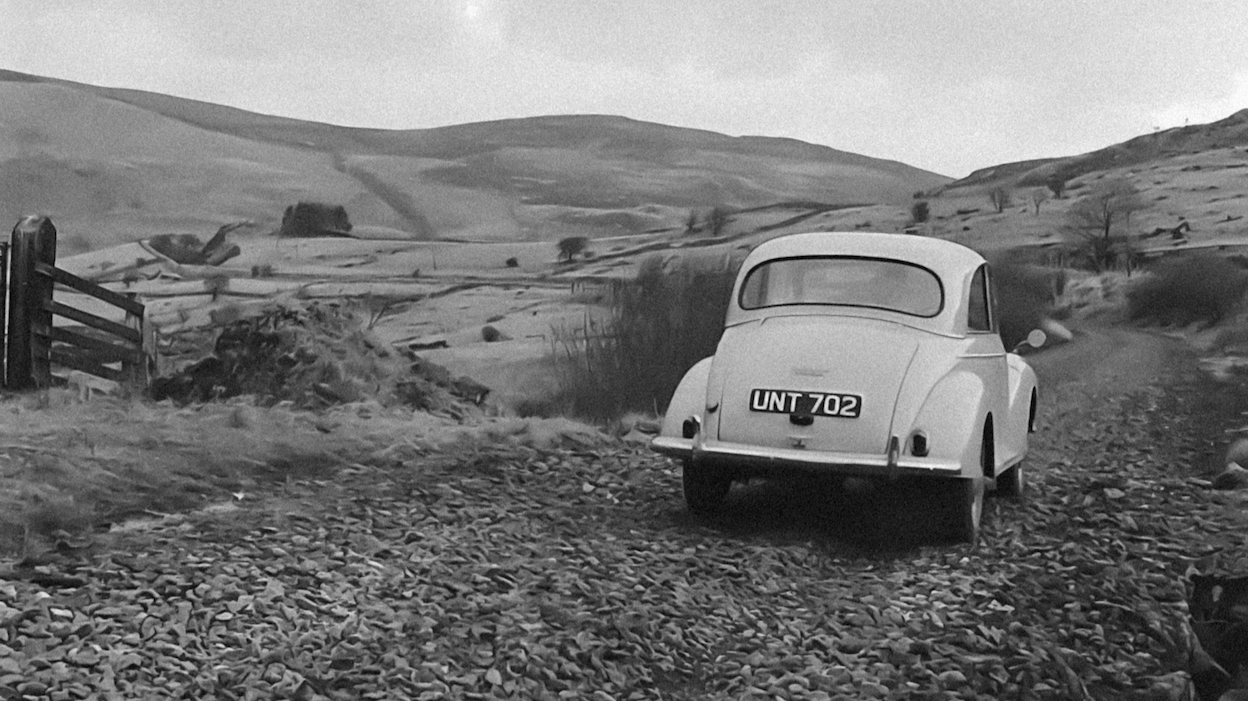 Photo by Geoff Charles, 1962. National Library of Wales. Llyfrgell Genedlaethol Cymru / The National Library of Wales on Unsplash
Photo by Geoff Charles, 1962. National Library of Wales. Llyfrgell Genedlaethol Cymru / The National Library of Wales on Unsplash
Check out my book, Shu Ha Ri: The Japanese Way of Learning, for Artists and Fighters. And you can also subscribe to the weekly Writing Slowly email newsletter.
Coming back to where you started is not the same as never leaving.
— Terry Pratchett
📷 Outside Matsumoto Castle it was raining gently.
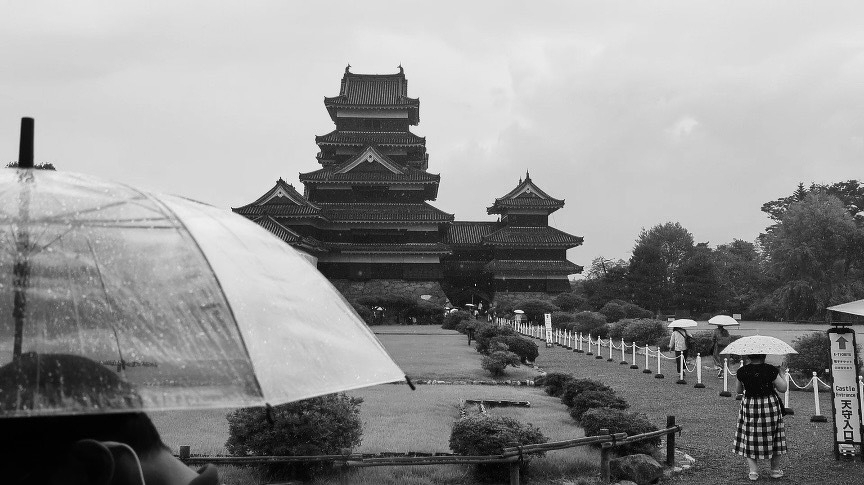
My book, Shu Ha Ri: The Japanese Way of Learning, for Artists and Fighters, is out now. Please check it out.
#MatsumotoCastle #Photography #JapanCulture #ShuHaRi #Learning #MartialArts #Nonfiction #JapanTravel
🎵 You’ve got to have a dream. #RetroTech #VinylVibes

Provocative words about learning, teaching, AI, and the timely value of history
Do you like links? Here’s what I’ve come across on the Web lately: provocative words about learning, teaching, AI, and the timely value of history.
💬 “What A.I. can’t do is feel the shape of silence after someone says something so honest we forget we’re here to learn. What it can’t do is pause mid-sentence because it remembered the smell of its father’s old chair. What it can’t do is sit in a room full of people who are trying—and failing—to make sense of something that maybe can’t be made sense of. That’s the job of teaching.” — Sean Cho A. on teaching college during the rise of AI The Rumpus.
💬 “When human inquiry and creativity are offloaded to anthropomorphic AI bots, there is a risk of devaluing critical thinking while promoting cognitive offloading. If we turn the intellectual development of the next generation over to opaque, probabilistic engines trained on a slurry of scraped content, with little transparency and even less accountability, we are not enhancing education; we are commodifying it, corporatizing it, and replacing pedagogy with productivity.” — Courtney C. Radsch, We should all be Luddites • Brookings.
💬 “While the school says its students test in the top 1% on standardized assessments, AI models have been met with skepticism by educators who say they’re unproven.” — The $40,000 a year school where AI shapes every lesson, without teachers. CBS News. Wikipedia: Alpha School. I’ll revisit this in a few years to see just how hard it crashed (or not).
💬 “As our lives become more enmeshed with technological devices, services, and processes, I think that awareness is something which we the technology-wielding should strive for if we want to build a properly humane and empathic world.” — Matthew Lyon, The Fourth Quadrant of Knowledge • lyonheart.
💬 “Knowledge of history and awareness of history can allow us to see patterns, make connections, and identify incipient problems. It can give us a language and a set of references which allows us to step back, broaden our view, and see things and sometimes warn ourselves and others when necessary.” — Timothy Snyder on Stalin and Stephen Miller.
I’m the author of Shu Ha Ri. The Japanese Way of Learning, for Artists and Fighters, available now.. And for all the crunchy, fresh Writing Slowly goodness you can sign up to the weekly digest. It’s exactly like a bunch of radishes, but made out of email.

Publishing means no more hiding
Revelation must be terrible, knowing you can never hide your voice again. – David Whyte
Publishing my book, I had the strange feeling of having crossed an invisible but very powerful threshold.
It was while signing copies at a small and very supportive gathering, that it dawned on me that the thoughts that used to be just in my head are now public and exposed to the world – and since I’ve lodged this work in every State Library in Australia, they’ll never again be totally private.
I had thought I just wanted to publish my words, to release my book into the wild, as it were, to allow it to find its readers.
So it never occurred that I might have been benefiting in some way from the obscurity of the drafting process.
Not that I want to hide my voice – far from it.
Nor that I’m expecting a million readers. Again, far from it.
But the knowledge that I now have one unique reader – you – with whom my words will perhaps connect whether I bid them or not, well that changes things somehow.
And it’s certainly a revelation to realise there’s no going back.
My book, Shu Ha Ri: The Japanese Way of Learning, for Artists and Fighters, is out now. Please check it out.
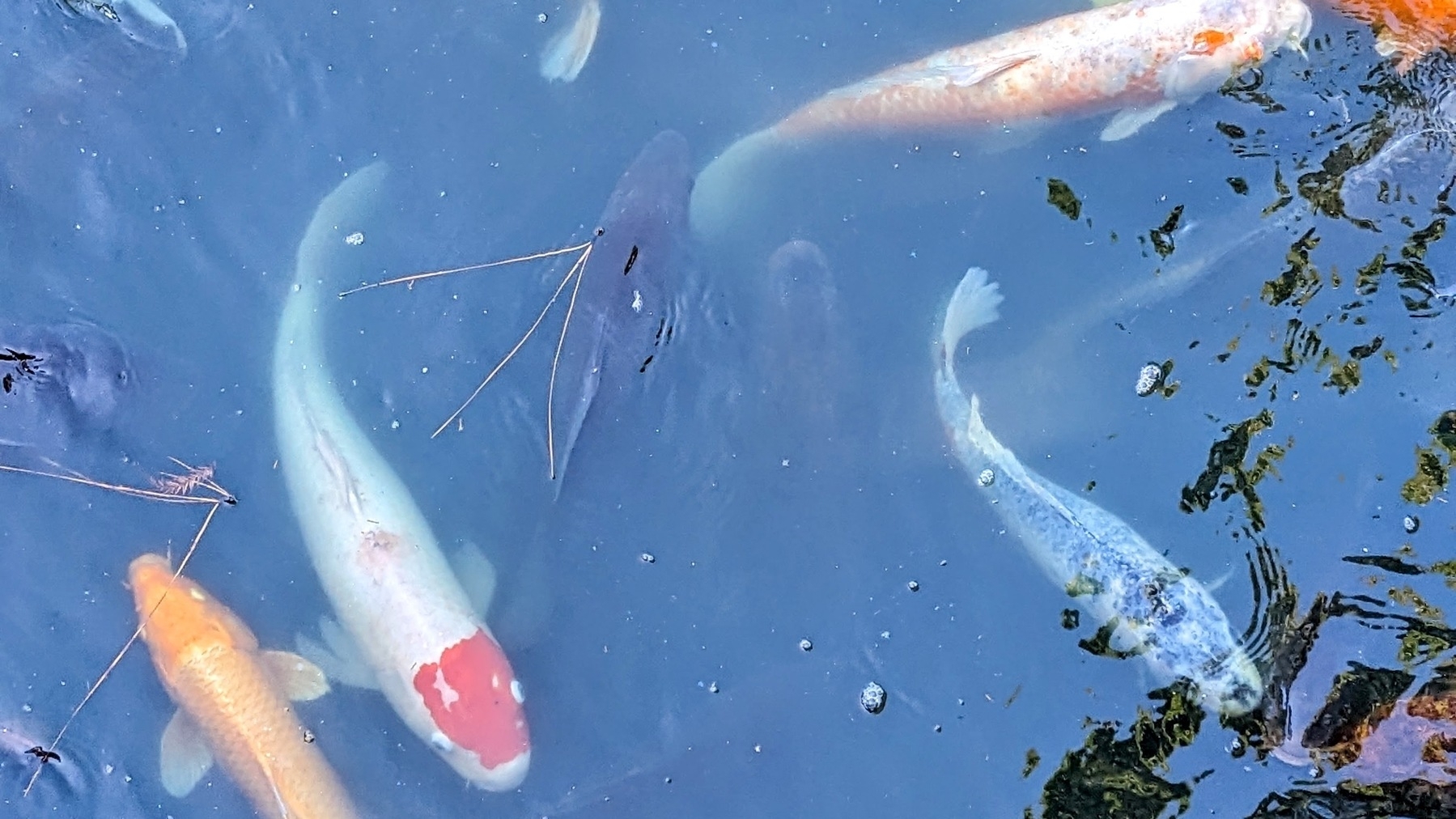
I fell down a rabbit hole writing about Hypercuriosity! 🤯 Inspired by Anne-Laure Le Cunff’s work.
Read how being curious about everything defines my process: https://writingslowly.com/2025/09/30/curious-about-hypercuriosity.html
#Hypercuriosity #Curiosity #ADHD #Writingslowly
Having written about the need to create your own writing environment, I found this post showing the writing spaces of 12 Booker Prize nominees quite illuminating. Each one seems like a small but mighty theatre stage (HT: kottke.org).
#WritingCommunity #AmWriting #WritersLife #WritingTips
Curious about Hypercuriosity
One reason I make notes and write is that I’m curious about everything.
I’ve written previously about how to be interested in everything. And I’ve also written about busybodies, hunters and dancers - three different styles of curiosity.
It was the ‘dancer’ style of curiosity that resonated most with me:
“This type of curiosity is described as a dance in which disparate concepts, typically conceived of as unrelated, are briefly linked in unique ways as the curious individual leaps and bounds across traditionally siloed areas of knowledge. Such brief linking fosters the generation or creation of new experiences, ideas, and thoughts.”
So I was interested to see that Anne-Laure Le Cunff, author of Tiny Experiments and founder of Ness Labs, Has been exploring what she calls ‘hypercuriosity’, which may be associated with ADHD.
Well, I guess I’m the living proof. I set out this evening to write about my book, Shu Ha Ri: The Japanese Way of Learning for Artists and Fighters but I ended up writing about something completely different instead: hypercuriosity.
Come to think of it, that’s how the book got written in the first place, by pursuing my curiosity. And come to think of it, that’s how I do practically everything.
In writing the book I was particularly attracted by the value placed on the Japanese concept of shoshin (初心), ‘beginner’s mind’ - a quality often downplayed in Western contexts, where experts are supposed to already know everything.
I’m more interested in not knowing - and then going to great lengths to find out.
Links:
Brar, G. (2024, November 14). The hypercuriosity theory of ADHD: An interview with Anne-Laure Le Cunff. Evolution and Psychiatry (Substack).
Gupta, S. (2025, September 16). People with ADHD may have an underappreciated advantage: Hypercuriosity. Science News.
Le Cunff, A. (2024). Distractability and impulsivity in ADHD as an evolutionary mismatch of high trait curiosity. Evolutionary Psychological Science, 10, 282.
Le Cunff, A. (2025, July 15). When curiosity doesn’t fit the world we’ve built: How do we design a world that supports hypercurious minds? Ness Labs.
If you’re curious to catch the latest Writing Slowly action, please subscribe to the weekly email digest. All the posts, delivered straight to your in-box.
